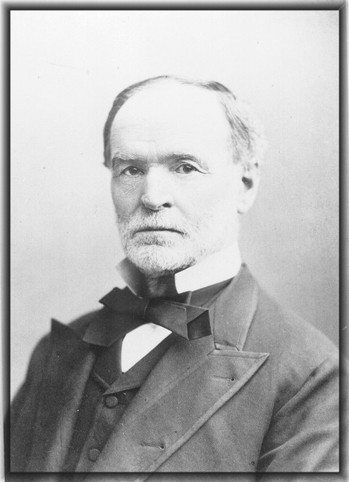Today’s Almanac-June 5, 2010

William Tecumseh Sherman about the time he refused the Presidency.
On June 5, 1884 William Tecumseh Sherman uttered words we would long to hear from a good many venal, corrupt, stupid or simply clueless folks who look into the mirror each morning and think, “there is the next President of the United States.” Although variations are attributed to him, the most commonly accepted is, “I do not choose to run. If nominated I will not accept. If elected I will not serve.” Sherman rose to fame as Ulysses S. Grant’s favorite subordinate and most reliable commander. They shared an unvarnished view of war stripped of myths of gallantry and chivalry. Early in the war Grant recalled Sherman after he suffered a mental breakdown. Years later Sherman said, “Grant stood by me when I was crazy, and I stood by him when he was drunk, and now we stand by each other.” As the General in charge of cleaving the Confederacy in half and destroying its industrial and transportation heartland in this drive from Tennessee to Atlanta, the burning of Atlanta, the March to the Sea and then across South Carolina, Sherman was credited with creating modern all out war not only on enemy armies, but on enemy civilian populations. He is credited with many pithy quotes in unapologetic defense of his ferocity including, most famously “War is Hell” and “War is cruelty. There's no use trying to reform it. The crueler it is, the sooner it will be over.” This made him the most hated man in the South, where generations of mother frightened their children to obedience by threatening them with “Sherman’s justice.” It also made him wildly popular in the North. Upon Grant’s election to the Presidency in 1868, Sherman was the inevitable choice for Commanding General of the Army, a post he held until his retirement in 1883. Those years coincided with some of the bloodiest Indian Wars on the frontier, which the General pursued with the same grim determination that marked his Civil War service. He said, “The only good Indian is a dead Indian” and is one of several people to whom the quote “nits make lice” is attributed as defense for killing children. In 1884 the Republican Party was divided and in disarray. Chester Alan Arthur, the accidental President who rose to the White House from the Vice-Presidency with the assassination of James Garfield, was wildly unpopular. The former Collector of the Port of New York and a product of the Spoils System had unexpectedly become a reformer and advocate of Civil Service reform, which put him at odds with the Party’s Stalwart faction but he was also no trusted by its liberals and reformers. It was apparent that Arthur would not get the nomination for a full term. Maine Senator James G. Blain was the front runner, but he had many enemies in the party himself. The Democrats were expected to surge that year as more southern states emerged from Reconstruction. Recalling electoral success with Generals Grant, Rutherford B. Hayes, and Garfield, it was natural for party leaders to turn to the most famous and popular surviving General of the late War of Rebellion. Sherman would have none of it. The nomination went to the Plumed Knight, Blaine, who promptly lost the election to Democrat Grover Cleveland. Sherman died in 1891 at the age of 71 after a retirement spending his final years giving speeches to Grand Army of the Republic gatherings and business groups.